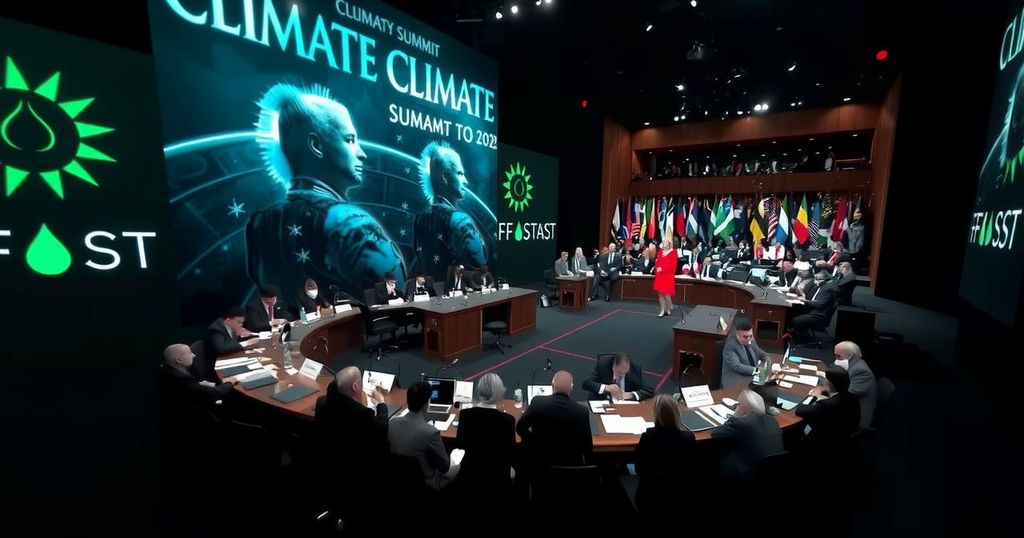The COP29 climate talks are facing significant challenges due to geopolitical issues, highlighted by Argentina’s withdrawal from discussions on climate financing. This development reflects broader dissatisfaction among nations about funding mechanisms and reveals how national interests are increasingly dominating global climate negotiations. The situation casts doubt on the future of international cooperation in addressing climate change.
The recent COP29 talks on climate financing have been significantly impacted by geopolitical tensions, particularly with Argentina’s withdrawal from discussions. This move reflects broader discontent among nations regarding the mechanisms of climate funding and the perceived inequalities within global climate agreements. As negotiations progressed, the focus increasingly shifted from collaborative efforts towards national interests, undermining the collective goal of addressing climate change. The future of international climate cooperation now appears uncertain amidst these rising tensions.
The Conference of the Parties (COP) is a crucial component of international climate dialogue, where countries convene to negotiate agreements aimed at combating climate change. The funding, especially to support developing nations in their climate initiatives, remains a key focus area at these talks. However, as recent geopolitical conflicts arise, they complicate these discussions, emphasizing the need for a consensus-based approach to climate finance that can accommodate the diverse interests of participating nations.
As COP29 unfolds, the implications of Argentina’s withdrawal underscore a larger challenge within the international climate dialogue, revealing deep-seated issues related to financing and cooperation. The ongoing geopolitical landscape poses significant risks to collaborative climate efforts, reinforcing the necessity for a transformative approach to achieve long-term global sustainability and equitable climate change strategies.
Original Source: www.euractiv.com






